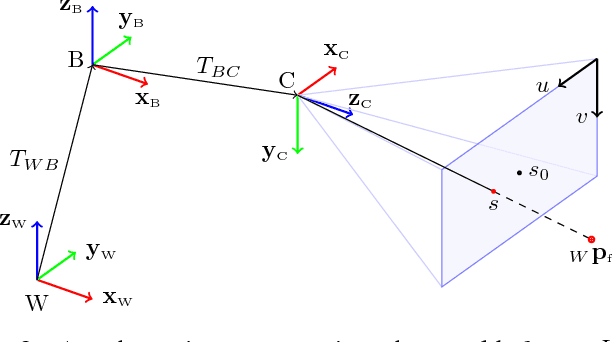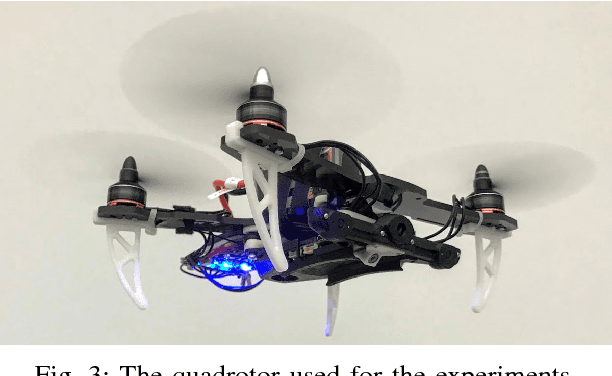PAMPC: Perception-Aware Model Predictive Control for Quadrotors
Paper and Code
Jul 10, 2018



We present the first perception-aware model predictive control framework for quadrotors that unifies control and planning with respect to action and perception objectives. Our framework leverages numerical optimization to compute trajectories that satisfy the system dynamics and require control inputs within the limits of the platform. Simultaneously, it optimizes perception objectives for robust and reliable sens- ing by maximizing the visibility of a point of interest and minimizing its velocity in the image plane. Considering both perception and action objectives for motion planning and control is challenging due to the possible conflicts arising from their respective requirements. For example, for a quadrotor to track a reference trajectory, it needs to rotate to align its thrust with the direction of the desired acceleration. However, the perception objective might require to minimize such rotation to maximize the visibility of a point of interest. A model-based optimization framework, able to consider both perception and action objectives and couple them through the system dynamics, is therefore necessary. Our perception-aware model predictive control framework works in a receding-horizon fashion by iteratively solving a non-linear optimization problem. It is capable of running in real-time, fully onboard our lightweight, small-scale quadrotor using a low-power ARM computer, to- gether with a visual-inertial odometry pipeline. We validate our approach in experiments demonstrating (I) the contradiction between perception and action objectives, and (II) improved behavior in extremely challenging lighting conditions.
 Add to Chrome
Add to Chrome Add to Firefox
Add to Firefox Add to Edge
Add to Edge